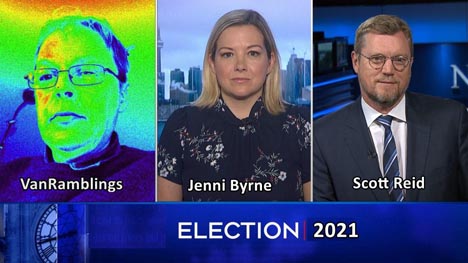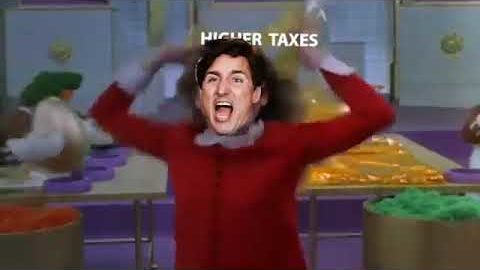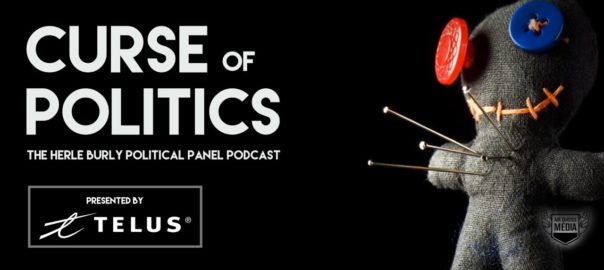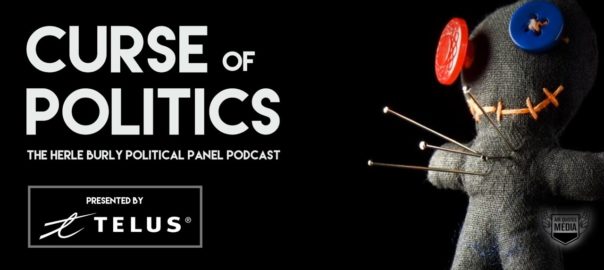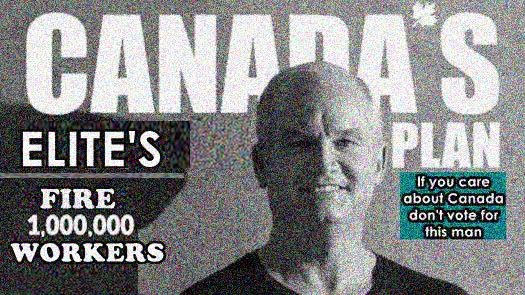
At the outset of David Herle, Scott Reid and Jenni Byrne’s Curse of Politics podcast yesterday, the three ‘given to being profane’ / celebrated pundits regaled Conservative Party of Canada leaders, Andrew Scheer — leader of the Conservative Party in the 2019 federal election — and Erin O’Toole, the Conservative Party’s current, beleaguered leader, for achieving the near impossible: losing the vote of the single most reliable portion of the electorate, those folks who will move the sun, the Earth, the moon, the stars, and push any boulder or impediment out of their way in order that they might exercise their democratic franchise, and vote, vote for the candidate and party of their choice: those members of the seniors’ population, those of us poor, woebegotten folks who are over age 65.
Yes, Andrew Scheer and Erin O’Toole have lost the votes of seniors!
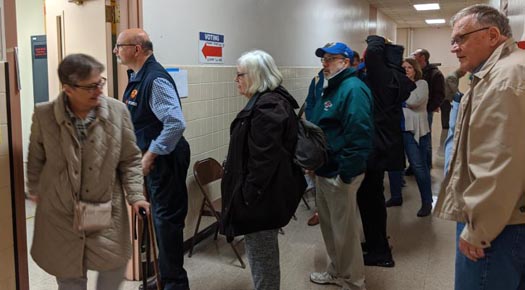
David Herle presented the following demographic breakdown figures …
“Under age 35, 30% NDP, 28% Liberal, 23% Conservative. In the 35 to 49 age category, 34% Conservative, 31% Liberal, 21% NDP. In the next age group, 50 to 64, 41% Liberal, 29% Conservative, and 15% NDP. And age 65+, 38% Liberal, 33% Conservative, 14% NDP.”
“And now gender. Among men, 37% Conservative, 29% Liberal, 19% NDP. Among women, 40% Liberal, 22% Conservative, and 22% NDP.”
Jenni Byrne’s reaction: “The thing that jumps out at me is the breakdown of the 50 – 64, and the over 65 categories of the electorate. The Conservative Party has owned these two demographics since voting began, and the vast majority of the time I worked for Prime Minister Harper, even during our time in Opposition, and after we formed government. The same was true in Ontario when I worked campaigns in that province. More mature voters have always voted Conservative. But no more, it seems. The fact that the Liberal Party now owns the votes of that portion of the electorate age 50+ jumps out at me as something that will prove to be a significant factor in the current federal election.”
Scott Reid weighed in with this: “The Conservatives have lost the seniors vote, and the older middle-age vote, which is fascinating, and a watershed change in voting patterns for the most reliable sector of the population when it comes to finding their way to the ballot box. Maybe in this election, the move of these 50+ voters to the Liberals has something to do with the pandemic: during the pandemic, the people in that cohort have felt vulnerable, they’re anxious about their jobs and their prospects, CERB and rent subsidies have made a huge difference for many of Canada’s older citizens. The Liberals have created the conditions that has allowed people to feel as secure as it is possible, given the current set of conditions impacting on all of our lives.”
In the 2021 election, the loss of the seniors vote is the least of the worries dogging the beleaguered Conservative Party of Canada campaign.

The western separatist, far right-of-centre, libertarian and Prairie-based Maverick Party, formed by former Prince George-Peace River Conservative Member of Parliament (from 1993 – 2010) and a former Government House Leader in the House of Commons during his tenure an an MP, the scandal-ridden Jay Hill, will have an impact on the ability of the Tories to retain, or win new, seats in western Canada.
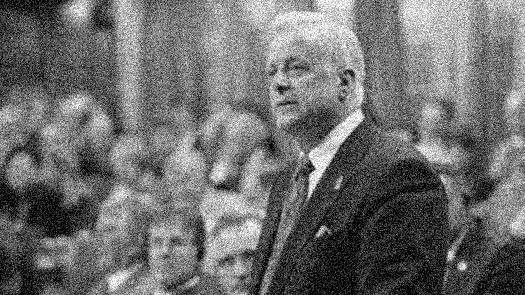 Jay Hill, leader of the western Canada separatist Maverick Party
Jay Hill, leader of the western Canada separatist Maverick Party
Shortly after retiring from Parliament — when he was feted at a dinner held in Fort St. John and attended by Prime Minister Stephen Harper, Premier Christy Clark, Reform Party of Canada founder and former Opposition Leader Preston Manning, among other right-of-centre luminaries — Hill was found to have breached ethics rules in the Conflict of Interest Act when he took advantage of his previous position and contacted ex-colleagues about a forthcoming multinational energy deal. Canada’s federal ethics watchdog found that Hill used his former position to facilitate access to the ministers on behalf of his spouse, Leah Murray, and her employer, National Public Relations, a firm that had drafted a communications plan for the deal.
What better way to revive one’s tarnished reputation that to form a right-of-centre, in the pocket of corporations, western separatist party?
In the 2021 federal election, Mr. Hill has stated that his Maverick – The West’s Federal Party will run more than 50 candidates in the current federal election, in ridings across northern British Columbia, Alberta, Saskatchewan and Manitoba. To date, more than 27 Maverick Party candidates have won nominations: three in British Columbia, including Dave Jeffers in the riding of Prince George-Peace River-Northern Rockies, Dr. Stacey Gastis in the riding of North Island-Powell River, and Bill Howie in Surrey-Newton, with another dozen B.C. candidates set to be announced this week or early next; 17 current Maverick Party candidates in Alberta, with another dozen set to be announced soon; six Maverick Party candidates in Saskatchewan, and another six who have accepted a Maverick Party nomination but are not yet on the party’s website, and one lonely Maverick Party candidate in Manitoba, with another three who have accepted a party nomination.
Each of these Maverick Party candidates — many of whom are running in ridings where the Conservative Party barely eked out a victory, or in 2015 and 2019 came within a spitting distance of winning the riding — will cost the Conservative Party votes, and in many cases cause the Tories to lose in ridings they either hold or otherwise might have won.
Jay Hill, leader of the western independence Maverick Party, recently told a reporter for the Western Standard online that the election of Conservative leader Erin O’Toole as prime Minister would do nothing to address the feelings of Western alienation, telling The Standard that the Maverick Party is running on a Western independence platform, and intends to elect members to Parliament in order to facilitate the separation of western Canada from the Canadian federation.
“We are running against a system that doesn’t work,” Hill told The Western Standard. “Many people in the West have given up, and we in the Maverick Party want to lay the foundation of independence,” indicating that following the Québec model would be a good start towards achieving western Canada separation.
Poor Erin O’Toole and the beleaguered Conservative Party of Canada — they just can’t seem to win for losing.
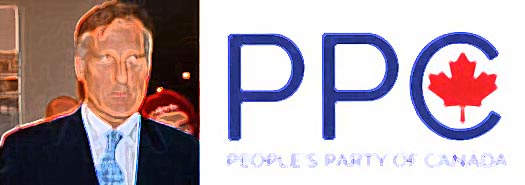 Maxime Bernier lost his Conservative Party leadership bid in 2017, so he went out and formed The People’s Party of Canada.
Maxime Bernier lost his Conservative Party leadership bid in 2017, so he went out and formed The People’s Party of Canada.
Seems that no one in the Conservative Party can get along.
Former Tory Jay Hill doesn’t like the fact that current Conservative Party leader Erin O’Toole isn’t a westerner — about which he feels alienated — so he goes out and forms the separatist, independiste Maverick Party, and picks up all his Tory marbles to do everything in his power to defeat his former Tory comrades, and that dastardly Erin O’Toole in particular.
Meanwhile, former Conservative Party leadership hopeful Maxime Bernier was so angry with Andrew Scheer and the Conservative Party when he lost his 2017 leadership bid that he went out and formed the far-right-of-centre, libertarian People’s Party of Canada, whose claim to fame these days is that — apart from the party’s bona fides as a homophobic, transphobic, anti-immigrant and white nationalist federal political party — is proudly home, now, to the avowedly anti-vaxxer crowd, every single one of their candidates who believe that COVID is a hoax, from the leader on down.
The People’s Party of Canada will run candidates in all 338 ridings across Canada. The Maverick Party — a latter day version of the 1990s western independence Reform Party, and long home to Stephen Harper — will run more than 40 high profile candidates in Alberta and Saskatchewan and, if history offers any lessons, has a good chance of displacing the Tories as they did in 1993, when the Reform Party won nearly as many seats and replaced the Progressive Conservatives as the major right-wing party in the Commons, although the party won only one seat east of Manitoba.
Combine the information above with the fact that Alberta Premier Jason Kenney is the least popular Premier in Canada, heading up a so-called United Conservative Party that, if an election were called tomorrow, would lose to Rachel Notley and her New Democratic Party — well, it doesn’t take a rocket scientist to figure out that the Conservatives will lose votes to the Liberals or NDP in Alberta (a protest vote against Kenney), while the PPC will garner the quite substantial anti-vaxx vote in Alberta and across western Canada, and look ready to take at least 8 percentage points of the vote away from Erin O’Toole and his Tories come September 20th, in Tory strongholds across western Canada, while Jay Hill and his merry band of western separatists in the Maverick Party look to pick up 20% of the vote, or better, in the ridings they’re running in across western Canada.
What does all of the above mean — if you ain’t already figured it out?
Whereas in 2019, Andrew Scheer and the Conservatives won 70+% of the popular vote in each of Alberta and Saskatchewan, in 2021 the Tories have a strengthened, anti-vaxx People’s Party of Canada running, and running hard, against them, with high profile candidates set to run in all western Canadian ridings, from British Columbia to Manitoba, with an eye to picking up the quite substantial anti-vaxx / anti-immigrant / white nationalist vote, and when you combine that vote with the western alienation vote of the Maverick Party, Erin O’Toole and the Conservatives are likely to hold on to only 50% of their vote in Alberta and Saskatchewan, losing enough votes to the PPC and Maverick Party in urban and rural ridings across western Canada, that it is almost a certainty that the Tories will lose as many as a dozen seats across western Canada, most particularly those where they barely scraped by with a victory at the polls in 2019.
And, hell, we’ve not even written about how badly Erin O’Toole and the Conservatives are doing in Ontario thanks to the unpopularity, verging on hatred / disgust with current Ontario Conservative Party Premier, Doug Ford, or how badly the Tories are doing in Québec and more particularly in the Maritimes — despite how well newly-elected Progressive Conservative Party leader / Premier Tim Houston did in Nova Scotia last evening …
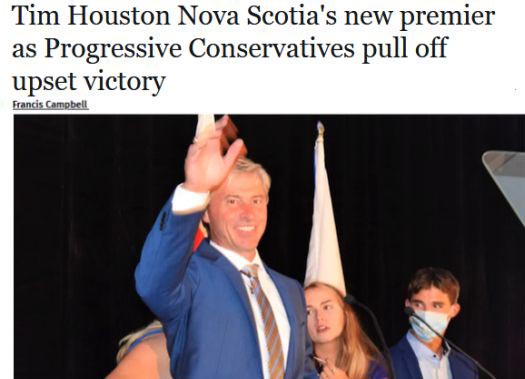 Nova Scotia Progressive Conservative Party Premier-elect Tim Houston declares victory Tuesday, August 17th evening after running a left-of-centre winning campaign for office.
Nova Scotia Progressive Conservative Party Premier-elect Tim Houston declares victory Tuesday, August 17th evening after running a left-of-centre winning campaign for office.
… at the end of a brutal, 32-day summer provincial election, who throughout his campaign for office ran as far away from Erin O’Toole and his band of intolerant, far right-of-center Tory ne’er-do-wells as he possibly could — folks, he said, with whom he shares absolutely NO values …
Yes, the Conservative Party of Canada is, by far, the best funded of the federal political parties, with $63.5 million in their coffers at campaign outset — but despite all the incessant Tory ads you’re seeing during the evening news and throughout the day and late into the evening, the Conservative Party cannot buy this election, cannot buy your affection, fealty or devotion, cannot convince women to vote for them, and cannot stop the People’s Party of Canada and the Maverick Party from hiving off substantial vote totals in dozens of ridings across western Canada.
Little wonder that Justin Trudeau set about to call a late summer election.
 Tory Prime Minister Stephen Harper gets a well-deserved drubbing at the polls in 2015.
Tory Prime Minister Stephen Harper gets a well-deserved drubbing at the polls in 2015.
And now, once again, David Herle, Scott Reid and Jenni Byrne weigh in on the current federal election, in their own inimitable and idiosyncratic way …
The indispensable Curse of Politics podcast on #Elxn44, for Wednesday, August 18, 2021.

